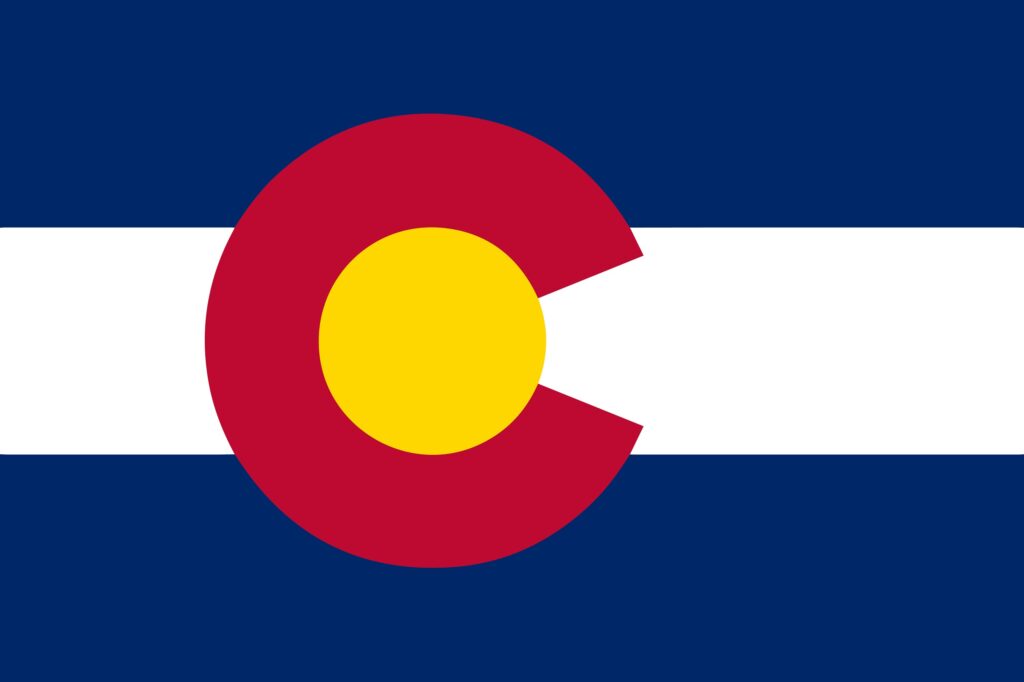Why Public Service? Episode 3: Michael Petrilli
“Look, we have an education system that we all inherited. It’s been around for over 100 years. At the beginning, that gave America great advantage. We were one of the first countries … the first country to have mass education, universal education. That was hugely important to our success in the 20th century. But the downside means that we have this system that’s pretty old and rickety, and maybe made sense at the time, 100 years ago, makes less sense today. We’ve got these 14,000 school districts that really make the key decisions in education, of course the 50 states. And then the federal government that has waxed and waned in terms of its interest in education and its attempt to try to get these schools to bend to its will.”
That’s Michael Petrilli, this week’s guest on Why Public Service?, speaking about education reform and lessons learned over his career spent grappling with the issue.
Today, Petrilli is the president of The Thomas B. Fordham Institute, a think tank that studies education policy and promotes educational excellence for every child in America. The Fordham Institute has offices in Washington, DC at the great state of Ohio. In addition to leading a think tank, Mr. Petrilli for many years has been a research fellow at Stanford University’s Hoover Institution, the executive editor of Education Next journal, and a distinguished senior fellow at The Education Commission of the States.
(Subscribe to Why Public Service? on Spotify or Apple, by RSS feed or search for it wherever you listen to podcasts.)
Transcript:
Kevin Kosar:
Welcome to Why Public Service? a podcast of The R Street Institute, a free market think tank in Washington, DC. I’m your host, Kevin Kosar. In each episode, I speak with an individual who made the choice to participate in governing our nation. Some of my guests have worked for the government. Others have toiled in various private sector organizations, including think tanks, philanthropies and political groups. All of them share the same goal, however, which is to improve our country through public service.
Kevin Kosar:
Today’s guest is Mike Petrilli, the president of The Thomas B. Fordham Institute. A think tank that studies education policy and promotes educational excellence for every child in America. The Fordham Institute has offices in Washington, DC at the great state of Ohio. In addition to leading a think tank, Mr. Petrilli for many years has been a research fellow at Stanford University’s Hoover Institution, the executive editor of Education Next journal, and a distinguished senior fellow at The Education Commission of the States.
Kevin Kosar:
He also has held positions in The United States Department of Education and at K12, a private e-learning company. Mike Petrilli is the author of The Diverse Schools Dilemma, the editor of Education for Upward Mobility and the co-editor of How to Educate An American. You can learn more about Mike Petrilli by visiting fordhaminstitute.org. Mike, welcome to the Why Public Service? Podcast.
Mike Petrilli:
Hey, it’s great to be with you, Kevin.
Kevin Kosar:
You’ve held many different positions in public service. From today’s episode, I want to speak to you about your leadership for The Thomas B. Fordham Institute. And my first question for you is, how did you end up the head of an education policy think tank? What was the path?
Mike Petrilli:
Yeah. Well, Kevin, in my case, I was lucky to really be there on the ground floor when The Thomas B. Fordham Institute was just getting started. I started at Fordham as the third employee, this was back in 1997. We were just getting off the ground and I have spent much of my career at Fordham. I spent about three years doing junior level things, and then left and spent five years mostly in the George W. Bush administration. And then came back as basically the deputy, the number two with an expectation that as our founder and my mentor Chester Finn was preparing to partially retire, semi-retire, that if all went well, I would take over.
Mike Petrilli:
I’d say backing up a little bit, before that, I have been interested in education policy really since college. So I’m one of the few people using their college degrees. At the University of Michigan, I was a political science major. But I did my senior thesis on education reform, got my teaching certificate on the side. And this was in the early to mid ’90s when things were really starting to happen. Charter schools and school vouchers and accountability, and there was a lot happening in education reform that seemed promising and exciting to a young person. And so I jumped in and this was just as “education reform” was getting started.
Kevin Kosar:
When you got out of college, were you aware of think tanks, were you thinking the think tank path was going to be the one for you? Or was it a career you found after doing other things?
Mike Petrilli:
Yeah. I was interested in education policy and in being an education reformer, but I didn’t know what that meant. And there really wasn’t much going on back then in those worlds. I remember, as I mentioned, I did the senior thesis on ed reform in Chicago. I ended up getting my thesis certificate, and for about a year and a half I got a chance to teach in a non traditional setting, which was at a camp basically. A place where kids went for sixth grade camp. And that was some fun way to get some teaching experience. But then I knew I wanted to move to DC and do education policy. Well, I didn’t know what I was doing. I found a list on Education Week of all kinds of education associations, and I started writing them all.
Mike Petrilli:
And it was the alphabet soup of groups and didn’t get much response. I actually did get a response finally from a man, Craig Gerald, who’s now a good friend of mine, who was at Education Week at the time. Who hired me as a summer intern, working on the second ever quality accounts report for Education Week. And that gave me a chance to get to DC and finally learn a little bit more about how these different groups operated. And by happenstance bumped into Chester Finn, then starting The Thomas B. Fordham Institute. Think tanks was not something I was necessarily looking at, but now I understand more what think tanks do and their role in the education policy and just the public policy worlds. It is something that makes a lot of sense. I knew I wanted to write, I knew that I wanted to be focused on the world of ideas. And now I understand that think tanks are the right place for that versus say an association or an advocacy group, though I get to work with those organizations all the time as well.
Kevin Kosar:
What are your responsibilities as the president of the Fordham Institute? Do you get to spend much time thinking?
Mike Petrilli:
I do. It’s pretty great. Well, first, Kevin, I should tell you a little bit about Fordham. Because we are a think tank, but we do other things as well. We have a staff of about 25 people and a budget of about $5 million. And we do work nationally as a think tank, but also on the ground in Ohio. Thomas B. Fordham was an industrialist way back in the 1920s and ’30s. His money savings turned into our endowment. And when we got started in the ’90s, after his much younger wife passed away at an old age, we decided that there wasn’t much donor intent. And the decision was to focus on education reform both nationally and in Ohio.
Mike Petrilli:
So we’ve got an office in Columbus, we’ve got an office in Dayton, and then an office in DC. And in Ohio, we do serve more as a policy advocacy organization, pushing for education reform, defending charter schools and school choice and accountability. And we also, out of Dayton, are a charter school authorizer. That means we are the entity responsible for overseeing the results for about a dozen charter schools. So we are this strange hybrid organization that gets to work at the national state and local levels and do think tank work, but also have at least a foot in the real world of schools. As president of the Fordham Institute, I need to worry about all of that. I oversee the team. I’m very lucky to have a senior staff that is fantastic. Five folks that report directly to me, and then they have different parts of the organization that report to them.
Mike Petrilli:
Part of what I do is the basic leadership and management that any CEO do. I certainly spend a fair amount of my time raising money, but I do get to spend also time doing the think tank work of writing, blogging, tweeting, speaking, doing radio shows and all of that. And again, in our world, it’s focused on K through 12 education reform. Following the big debates that are happening in that world, and also trying to promote what we see as smart policies going forward.
Kevin Kosar:
You have given us a little flavor of the things that you get to do. But can you give the listener an idea of what the average day looks like? If in fact there is an average day.
Mike Petrilli:
Yeah. It’s a real mix. But I would say, I try to carve out some time every day to do some writing or that kind of intellectual work. Because I enjoy it and that is what we’re supposed to be doing. We are so lucky to get to play that role. I try to do that usually in the mornings, maybe a couple hours where I’m writing a blog post or a journal article or I have various times over my career working on a book. Then there’s of course some meetings. Those are often with potential funders or with funders. Fundraising as I mentioned is a big part of my role, though not as much for some of my colleagues. But our business model is basically to go around with a tin cup to 10 or 20 national foundations that care about education and education reform, and try to find projects that we want to do and that they are interested in, because of their approach and strategy and mission.
Mike Petrilli:
And then what else? We end up engaging a lot with partners. We’re a small organization, 25 people. The think tank part’s even smaller. And so if we’re going to have any impact, it’s going to be by having deep relationships with other organizations that can take ideas from a think tank like ours and put them into practice. So for example, we helped to start an organization called the PIE Network. It’s a terrible name, but it stands for policy innovation in education network. And it’s an umbrella group of about 100 ed reform organizations around the country, many of them based at the state level. And they really are groups that wake up every day and try to push a legislative agenda in the states related to charter schools or accountability or teacher stuff.
Mike Petrilli:
So I spend a fair amount of my time with those organizations, and trying to be supportive and help them do what they do and to help them formulate policy ideas. Those are the kinds of organizations that, again, can translate our writing and thinking and big picture talk into actual legislation, into actual policy change. We also, as an education group, do a lot of that kind of work with folks that are more practitioner oriented. The superintendents and principals, especially in the charter school sector, but others as well. Trying to have an influence on the way they think and in their work also.
Kevin Kosar:
So you’ve been working in education policy for a long time now, and it’s complicated by the fact that there’s a local, state role and also a federal role. What lessons have you learned about governance of education policy?
Mike Petrilli:
Yeah. What boy, what lessons? It is hard. It’s a mess. Look, we have an education system that we all inherited. It’s been around for over 100 years. At the beginning, that gave America great advantage. We were one of the first countries … the first country to have mass education, universal education. That was hugely important to our success in the 20th century. But the downside means that we have this system that’s pretty old and rickety, and maybe made sense at the time, 100 years ago, makes less sense today. We’ve got these 14,000 school districts that really make the key decisions in education, of course the 50 states. And then the federal government that has waxed and waned in terms of its interest in education and its attempt to try to get these schools to bend to its will.
Mike Petrilli:
What all that means is, it’s a mess. There’s a million veto points. If you are trying to run a traditional public school, you’ve got to worry about all these different levels of governance, all these different people basically telling you what to do. And what that means is there’s, every year, more and more layers of red tape and regulation and restrictions, when what you may be really need is just a clear path to doing what’s right for kids. That’s one reason why I have become a big fan. I have always been a big fan of charter schools, because the notion was to break through all of that. To try to start afresh and to try to carve out some room for educators to just do what they do best, without all of the complexity.
Mike Petrilli:
Now it’s not that simple, and over the years, charter schools have had to increasingly deal with more and more layers of governance as well. This is just the nature of running institutions that are in the public sphere. But I do think you can now look at the track record of charter schools and say that the governance innovation that they represent has been hugely important and allowed them to get better results and have more innovation and get things done. It’s not that the people in the charter school sector are more talented than the people in the traditional public school sector, it’s just that the governance all works better. Long story short, governance matters tremendously.
Kevin Kosar:
So you’re the president of The Thomas B. Fordham Institute, what’s the toughest part of your job?
Mike Petrilli:
I think I would say, it’s keeping the faith that what we are doing on a daily basis is having an impact in the real world in long-term. Any given day, you can look back and say, oh my goodness, is anything I’m doing actually making a difference? Does it matter? Unlike so many other jobs out there, I can’t look and point directly and say, hey, let’s say I’m building a road and I can look and see that we made progress on that stretch of road today. Instead, it’s all very long-term. We’re trying to shape the way people think about problems and put issues on the agenda and get public policy moving in a certain direction. And it’s slow and it takes time.
Mike Petrilli:
And it’s only after you … maybe a year, five years, 10 years, you look back and say, okay, I can see that what we have done has contributed to an important shift in thinking and in policy, and it’s made things better for kids. We can do that in some respects, in the charter school movement, as I mentioned. And we’ve been a part of that since the beginning, in the push for higher standards. Now there’s a big push to try to ramp up the quality of curriculum, and we’re starting to see that payoff. But day by day, it can be a challenge to see that your efforts are adding up to anything.
Mike Petrilli:
And of course, that matters to our own motivation and enthusiasm, and it also matters to funders. We have to make the case constantly to our funders, that what we are doing is making a difference. And that can be challenging in the short-term. Over the long-term it’s easier, but it can be hard. Particularly when some of these funders, understandably, they want to be able to report to their boards on a fairly short-term basis that the funding they are doing is making a difference. And that can be a challenge.
Kevin Kosar:
With your degree in political science, you could have done any number of things, but you chose public service. Why public service?
Mike Petrilli:
Yeah. Look, I think that I have always been interested in this notion of trying to improve public policy, make the world a better place, kumbaya. And I think I certainly now understand that there are lots of ways of doing that. I think that private enterprise and many businesses that have been built have changed the world for the better, much more so than a lot of the things that we want to do in education policy or public policy at large. But I do think, when we think about how to create a better America, I continue throughout my whole career believe that public policy matters. And in my world, education matters. That all the big debates we’re certainly struggling with right now, income inequality, racial injustice, even some of the concerns around climate change. So much of it comes back to whether we can provide more opportunity to young people, especially young people growing up in poverty, young people growing up in working class neighborhoods.
Mike Petrilli:
It’s impossible to get from here to there without better schools. And these schools are one of these things where we have so much more control over them as public than we do so many of the aspects of kids’ lives. It’s really hard to have much traction on families and what goes on in the home or how to fix rundown neighborhoods, I don’t know how to do that. But I do know that it is possible to improve schools and to turn schools from bad schools to good schools. And if we could do more of that, dramatically more of that, we would have a much better country. So that keeps me motivated. And at the same time, I have figured out that I enjoy speaking, I enjoy writing, it’s something I’m good at. And so if that’s the way that I can make a contribution, I just feel so fortunate that that’s the case.
Kevin Kosar:
Mike, thank you for keeping the faith. Thank you for your efforts. Thank you for joining me today.
Mike Petrilli:
Thank you, Kevin. It’s been a real pleasure.
Kevin Kosar:
Thank you for listening to, Why Public Service? A podcast of the R Street Institute. Please subscribe to the podcast and share it with your friends. Even better, rate and review us on iTunes so we can reach more listeners. Tell us what you thought about it, and who we should interview next by finding us on Twitter at RSI. If you want to know more about R Street, sign up for our newsletters at www.rstreet.org. I’m your host, Kevin Kosar. Thank you to producer William Gray and editor Parker Ted from parkerpodcasting.com.







